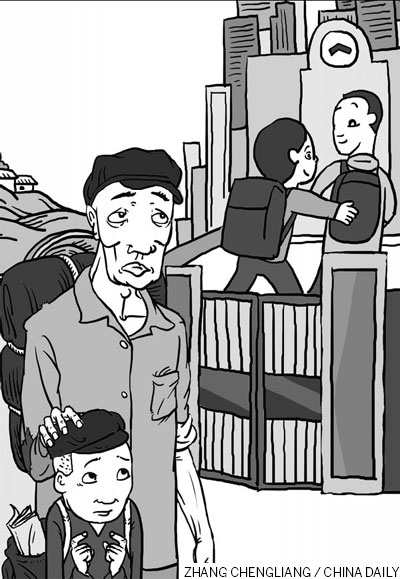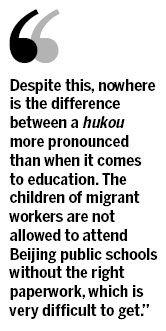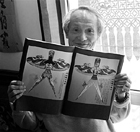Comment
Address hukou inequality
By Joseph Christian (China Daily)
Updated: 2010-05-04 08:08
 |
Large Medium Small |

Martin Luther King Jr's "I have a dream" speech has to be one of the most inspiring but overused speeches of all time. Nowhere is this truer than among English learners in Beijing.
It surprises me how many times I have walked through a university campus in the early morning hours only to have the quietness ruined by a heavily accented declaration of "I have a dream!" Many times the culprit is widely gesturing before an audience of trees as they continue the speech obviously prompted by the earphones, whose loud volume saves them from any worry of embarrassment.
Being an English teacher and hearing countless students begin their speeches with "I have a dream" has largely ruined Dr King's wonderful speech for me. It just seems so clich and that's a shame because it shouldn't be.
There is a lot one could say about racial discrimination in Beijing. Because Chinese live in a largely homogeneous society, I am not surprised that many have never experienced the ugliness of racism, even if they have dealt with it.

But racial discrimination is not the discrimination I want to talk about here. There is a much more common discrimination that is currently taking place in Beijing.
It is not based on the color of the skin, but rather one's hukou or permanent residence permit. Initially issued based on place of birth, a hukou can change if you get the right kind of job, or pay certain individuals the right amount of money.
Still, most Chinese people's hukou are registered in their hometown. In relation to Beijing, this means that millions of migrant workers in the city are without a Beijing hukou and all the services and treatment that it entitles the bearer.
It is amazing how the lives of those that reside in Beijing can be made better or worse by something as arbitrary as a little crimson booklet.

During last year's H1N1 scare, the city withheld inoculations from those without a Beijing hukou for weeks. Eventually they did offer the masses of migrant workers the opportunity to get a shot in the arm, but I would hate to imagine what would have happened if the outbreak ended up being as bad as feared.
Despite this, nowhere is the difference between a hukou more pronounced than when it comes to education.
The children of migrant workers are not allowed to attend Beijing public schools without the right paperwork, which is very difficult to get. As a result, if the parents of these children want their kids to get an education, they have to fork over thousands in "sponsorship fees", which is just a nice way to say bribes.
Furthermore, without a Beijing hukou, these unfortunate kids can't even sit their university entrance exam in Beijing and have to travel all the way back to their hometowns.
It is just plain unfair. On average, the families of migrant workers are much poorer than Beijing hukou holders and they are the ones having to fork over the dough. I fail to see how that can create harmony, but I do see how it can create resentment.
If you pick up a newspaper you don't have to read far these days to find stories about highly intelligent children of migrant workers losing their place to less remarkable but hukou-holding Beijing kids.
This is why recently there have been so many angry parents petitioning for fairer treatment.
After all, with the competitive social conditions that exist in China today, education is one of the best ways to create opportunities for children. So, why are Beijing kids being offered more opportunities? Are they better?
I am not trying to bad-mouth the policies. In the past, a hukou might have been necessary, but in the economic and social conditions that are present in China today, it is a relic of the past that is creating more problems than benefits.
China's leaders have reformed different aspects of hukou registration and enforcement over the years - but still there is work to be done.
Education is fundamental to building a more equal society and unless it is addressed, the problem will only get worse.
Which brings me back to my beginning with Dr King who once dreamed his children would not be judged by the color of their skin but by the content of their character.
In Beijing it should be, "where they will not be judged by the city of their birth but by the content of their character."







